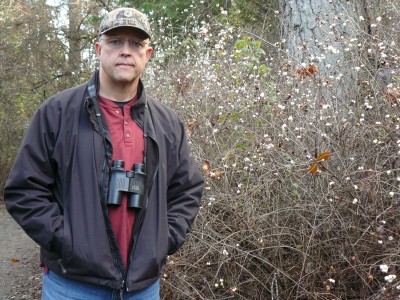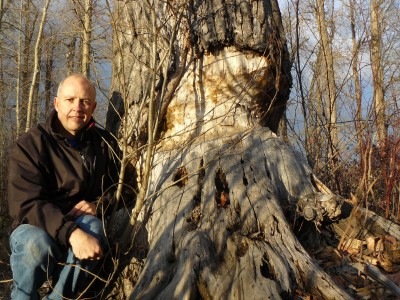Plants, animals, insects… these are all forms of life that reside in the forest. A forest wouldn’t be a forest without life, and forests are crawling with living things. We want our forest ecosystems to continue to thrive, so a very important field within forestry is the study of life, or biology.
For this forestry job profile, I interviewed Rick Bonar, a biologist.

Tell me about your job. Who do you work for? What is your role in the organization?
Chief Biologist, West Fraser Mills. I ensure the company is complying with requirements and commitments in relation to most aspects of forest management related to the environment and biodiversity. I also am President of the Foothills Research Institute, which is engaged in research and knowledge transfer to support land and resource management.
What role do biologists play in the forest industry?
Multiple roles, from working with government and others to develop policy, to planning from strategic to local scales, to inventory, monitoring and research, to reporting and communications. Really a variable and challenging job!
What is your background (experience/training)?
I finished my BSc in Zoology in 1974. I started working in the forest industry in Hinton, Alberta in 1988. In 2001, I completed my PhD in forest wildlife ecology. I now have 40 years of experience as a professional biologist.
What does a typical day/week look like for you?
Lots of variety and lots of challenges. Nowadays it’s mostly meetings and interactions with others, trying to get things accomplished. I don’t find much time to work in the field anymore, but I still have a few projects in the forest. The first 20 years of my career were almost entirely in the field. Now I spend a lot of time getting the resources and people in place for others to do that work.
What aspects of your job do you enjoy the most?
Interacting with people to make improvements that provide benefits to people and to the environment we all depend on. I love win-win achievements.

Can you give an example of a time when your work significantly impacted your organization and/or the industry?
Sure. A good example is the development and implementation of a forest management approach based on approximating natural disturbances. This took a lot of years and isn’t over yet – it’s a journey. Retention of patches, clumps, and single trees in cutblocks is a visible example of this new approach, but there are many other aspects.

What qualities make up an ideal candidate for a position like yours?
Wanting to make a positive contribution and having the drive to work toward that is probably a key quality. Willingness to learn and try new things and to work with others who won’t always agree is critical. And of course a broad background in resource management is useful too. In this job you have to be a bit of a generalist and be on top of new knowledge and opportunities. It’s interesting and challenging! If you like “thriving in chaos” this is the job for you!
To learn more about biology jobs in the forest industry, check out the Wildlife, Plant, and Fish Biologist section on our Career List page.